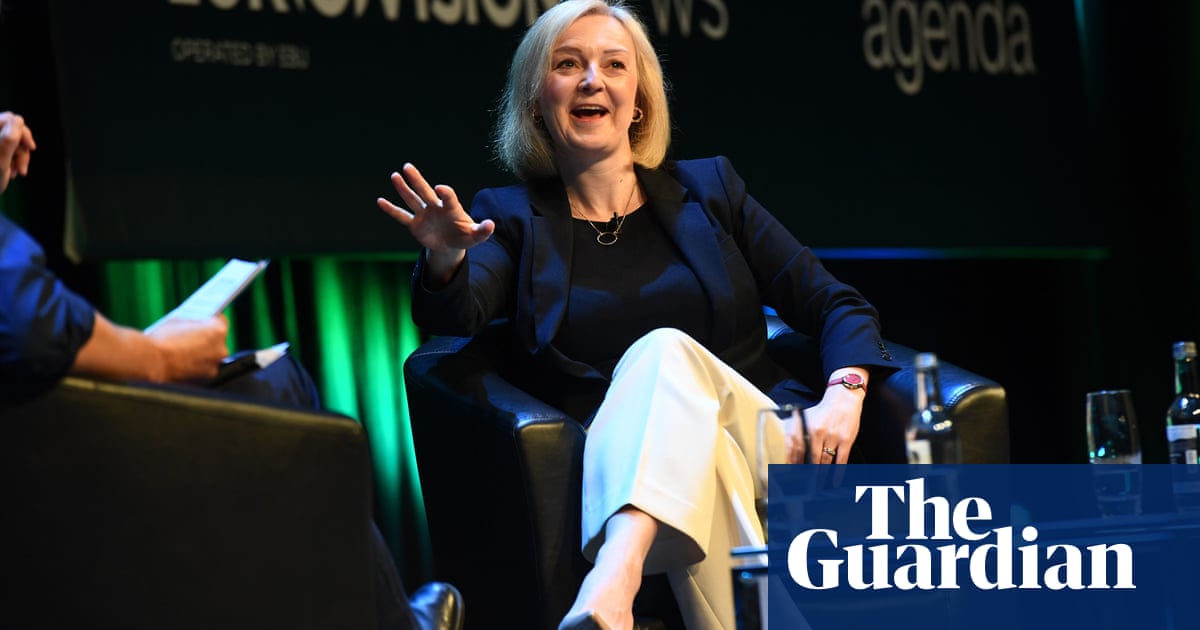
Liz Truss could abandon the state pension triple lock to help plug the fiscal black hole after her disastrous mini-budget, leaving more than 12 million pensioners facing a real-terms cut in their incomes in April.
The prime minister’s official spokesperson refused four times to commit to keeping the pensions guarantee despite it being a key 2019 manifesto commitment that Truss confirmed she would stick with it just two weeks ago.
In contrast, Truss backed off a plan to scrap the government’s commitment to raise defence spending to 3% of GDP by 2030 after the defence ministers Ben Wallace and James Heappey threatened to quit.
The prime minister told her cabinet on Tuesday there were “difficult decisions” ahead over where the spending cuts would fall in a 90-minute meeting from which ministers emerged grim-faced.
The chancellor, Jeremy Hunt, has asked all cabinet ministers to come up with plans for departmental cuts to be submitted to the Office for Budget Responsibility as he tries to balance the books ahead of the Halloween fiscal statement.
“We are very aware of how many vulnerable pensioners there are and, indeed, our priority ahead of this fiscal plan will be to ensure we continue to protect the most vulnerable in society,” the spokesperson said.
“The chancellor has been clear, the prime minister and the chancellor are not making any commitments on individual policy areas at this point, but as I say the decisions will be made through the prism of what matters most to the most vulnerable.”
Hunt triggered speculation about the fate of the triple lock, which guarantees that the state pension rises every year by the highest out of inflation, earnings or 2.5%, when he ruled out “making any commitments on any individual policy areas” in his Commons statement on Monday.
Under the guarantee, state pensioners would get a rise of about 10% in April 2023, which would take their weekly payment from £185.15 to just over £200, helping to alleviate some of the other pressures on their budgets during the cost of living crisis.
The triple lock was suspended for 2022-23 because Covid led to an unusual 8% rise in earnings, as wages soared back up after the end of lockdown. But the government had said the triple lock would apply again for 2023-24.
Asked what the point of the lock was if the government didn’t stick to it, Truss’s spokesperson told reporters: “We are in difficult circumstances” and said it was “right to consider all options as a whole.”
Downing Street did not rule out cuts in health despite the NHS already being on its knees. In response to questions, Truss’s spokesperson said: “On health, I can only point you to what the chancellor has said on this on a number of occasions. There was a lengthy discussion in Cabinet on preparations for the medium-term fiscal plan and what that would entail.”
Defence sources had insisted that Wallace, one of the most highly regarded ministers in the government, “will hold the prime minister to the pledges made”, prompting fresh speculation he might quit if the defence pledge was not met.
The prime minister’s spokesperson said the increase would remain but suggested that the “shape” of how the funding got to the Ministry of Defence could change.
“We are obviously committed to maintaining the UK’s position at the forefront of Nato, that’s why the PM committed to raise defence spending to 3% of GDP by 2030,” he said. “The shape of that increase will be set out at future spending reviews in the normal way.”












